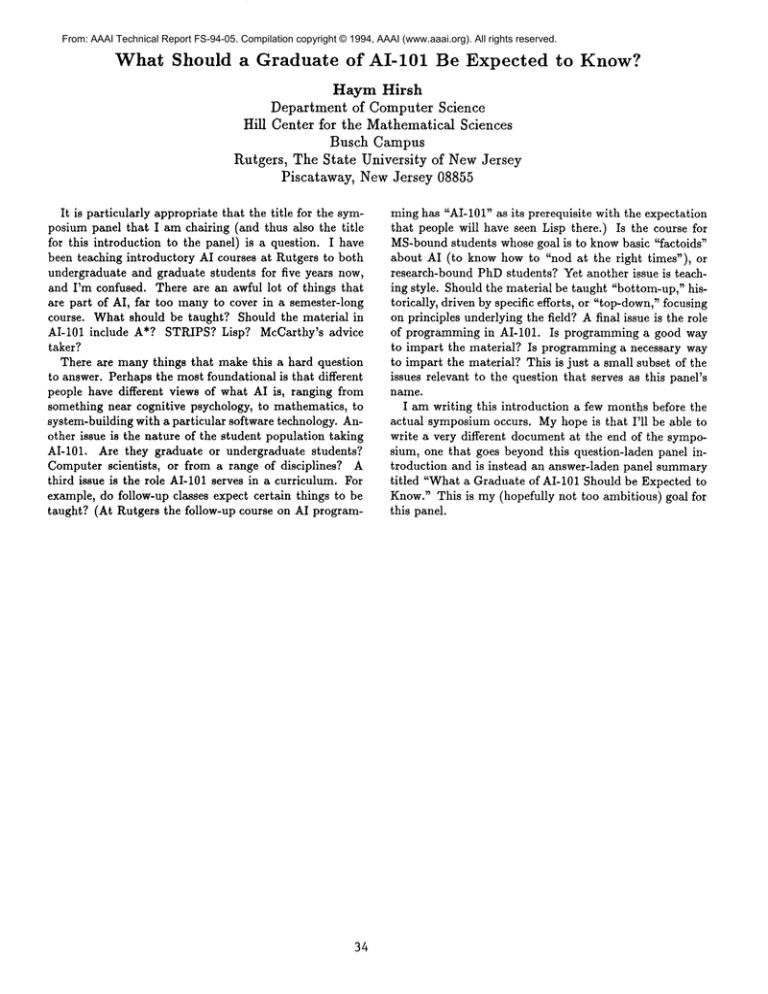
From: AAAI Technical Report FS-94-05. Compilation copyright © 1994, AAAI (www.aaai.org). All rights reserved.
What Should a Graduate
of AI-101 Be Expected
to Know?
Haym Hirsh
Department
of Computer Science
Hill Center for the Mathematical Sciences
Busch Campus
Rutgers,
The State University
of New Jersey
Piscataway,
New Jersey 08855
It is particularly appropriate that the title for the symposium panel that I am chairing (and thus also the title
for this introduction to the panel) is a question. I have
been teaching introductory AI courses at Rutgers to both
undergraduate and graduate students for five years now,
and I’m confused. There are an awful lot of things that
are part of AI, far too many to cover in a semester-long
course. What should be taught? Should the material in
AI-101 include A*? STRIPS? Lisp? McCarthy’s advice
taker?
There are many things that make this a hard question
to answer. Perhaps the most foundational is that different
people have different views of what AI is, ranging from
something near cognitive psychology, to mathematics, to
system-building with a particular software technology. Another issue is the nature of the student population taking
AI-101. Are they graduate or undergraduate students?
Computer scientists,
or from a range of disciplines? A
third issue is the role AI-101 serves in a curriculum. For
example, do follow-up classes expect certain things to be
taught? (At l~utgers the follow-up course on AI program-
34
ruing has "AI-101" as its prerequisite with the expectation
that people will have seen Lisp there.) Is the course for
MS-boundstudents whose goal is to know basic "factoids"
about AI (to know how to "nod at the right times"),
research-bound PhDstudents? Yet another issue is teaching style. Should the material be taught "bottom-up," historically, driven by specific efforts, or "top-down,"focusing
on principles underlying the field? A final issue is the role
of programming in AI-101. Is programming a good way
to impart the material? Is programming a necessary way
to impart the material? This is just a small subset of the
issues relevant to the question that serves as this panel’s
name.
I am writing this introduction a few months before the
actual symposiumoccurs. Myhope is that I’ll be able to
write a very different document at the end of the symposium, one that goes beyond this question-laden panel introduction and is instead an answer-laden panel summary
titled "What a Graduate of AI-101 Should be Expected to
Know." This is my (hopefully not too ambitious) goal for
this panel.




